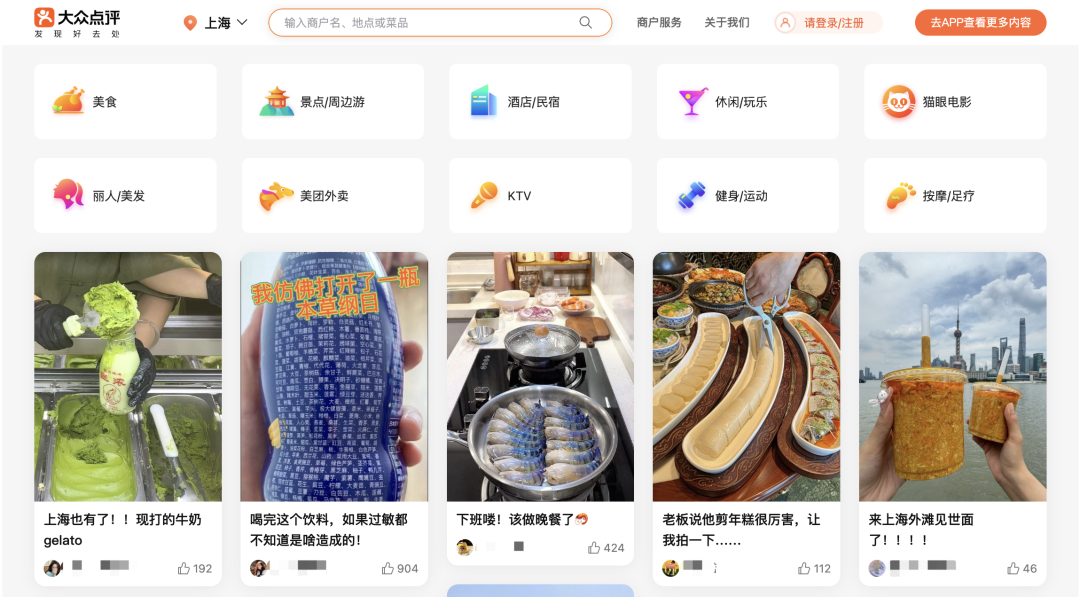Meituan's short dramas debut on Douyin, signifying a truce in the local services battle?
![]() 08/15 2024
08/15 2024
![]() 606
606

Author: Cheng Yu
Disclaimer: The cover image is sourced from the internet.
For original articles from Jingzhe Research Institute, please leave a message for permission before reprinting.
If there's anything more surprising than watching a suspense movie commentary in three minutes, it might be seeing Meituan advertise its own 'super coupons' through self-produced short dramas on Douyin.
On August 7, Meituan's self-produced original short drama, 'I Rewrite My Destiny in My Diary,' debuted on platforms like Douyin and WeChat Moments. Unlike other short dramas with hundreds of episodes focusing on romance or revenge, this one concluded after just five episodes, with comedian Wang Tianfang, known as the 'affordable version of Huang Bo,' cast as the male lead.
As Douyin's business has continued to expand into local services like food delivery and group buying in recent years, Meituan and Douyin have often been compared. Therefore, it has been widely believed that a battle between the two in the local services market was inevitable.
However, the fact that a short drama ostensibly created by Meituan to advertise its own platform has been allowed on Douyin's platform raises questions: Was it a momentary oversight by Douyin, allowing Meituan to take advantage of the situation? Or has there been a truce between the two giants?
Meituan's Short Dramas: Getting into Character
Looking back, it becomes clear that Meituan began experimenting with short videos as early as August 2022. Drawing inspiration from Douyin Lite's cashback model, Meituan rewarded users with red envelopes based on their viewing duration and number of videos watched. Additionally, Meituan tested a 'second floor' function, where users could access short videos by swiping down from the 'Food Delivery' module.
As Meituan continued to experiment with short video content, the content market itself underwent significant changes.
Since the end of 2023, the popularity of short dramas has presented Meituan with a new opportunity. Public reports show that as of March 6, 2024, eight premium micro-dramas during Douyin's Spring Festival season had garnered over 100 million views, with 'New Year's Eve' surpassing 800 million views and related topics exceeding 4.4 billion views.

In March of this year, Meituan revamped its short video section, adding a theater channel. By April, this channel included curated short dramas. Currently, the 'Theater' channel on the Meituan app has been renamed 'Short Dramas,' and all available short dramas are free to watch.
Meituan's investment in short dramas is largely driven by the observed increase in traffic and the potential to empower existing businesses through content-driven strategies. Judging from the existing short drama content on the Meituan app, it appears that Meituan is accessing this content primarily through direct purchases or content partnerships.
Essentially, this is akin to creating a 'mini theater' within the Meituan app, where users who are interested in the content or motivated by red envelopes can continue watching during their daily use of Meituan.
Compared to the typical short video content ecosystem consisting of platforms, users, and diverse account content, the presence of video accounts on Meituan's 'Short Dramas' channel is relatively low-key. Instead, the content display logic emphasizes using short dramas of different genres to guide users into watching full series.

This content scenario is characterized by its ability to quickly shift users from a consumption context to an interest context, fostering extended retention. During this retention phase, product cards or screen push notifications can be used to recommend product information and stimulate purchases.
Last August, when Meituan sponsored Kuaishou's Xingmang short drama 'The Wife's Character,' it attempted to push product information within the content scenario. Besides the regular brand exposure, viewers could click on the Meituan group-buying links attached to the screen edges to purchase Meituan deals. Ultimately, this popular short drama garnered 490 million views and helped Meituan verify the possibility of completing purchase conversions within the short drama scenario.
In fact, the cooperation between Meituan and Kuaishou demonstrates that there is no direct competition between Meituan and content platforms.
As one of the primary platforms for local services, Meituan addresses users' definite needs in scenarios like food delivery and group buying. Content platforms like Kuaishou, on the other hand, fulfill users' content consumption needs and leverage traffic value for conversions.
Returning to Meituan's self-produced short drama 'I Rewrite My Destiny in My Diary.'
While the short drama indeed advertises Meituan's 'super coupons' at the content level, it is reasonable for Meituan to publish brand-related content through its official Douyin account without external links. Despite the perceived competition between platforms, Douyin has no reason to restrict content platforms.

Notably, many short video accounts on Douyin promote Meituan food delivery coupons, and users can directly jump to WeChat by clicking on the ad links, where they are directed to the official accounts of Meituan-related businesses.
Compared to publishing 'ads' on Douyin's official account, this outward conversion has a more pronounced sense of 'competition.' However, its existence also suggests that Douyin's perception of platform competition may not be as intense as people imagine.
Will Meituan and Douyin Eventually Clash?
The perceived competition between Meituan and Douyin is generally believed to have begun in 2020, when Douyin ventured into the local services group-buying business.
In March of that year, Douyin launched 'Douyin Group Buying,' offering online ordering, group buying, and food delivery services. In July, it added hotel and ticket booking functions, completing a closed-loop transaction system. In September, Douyin introduced the 'Heart-Pounding Restaurant Rankings' activity, discovering popular restaurants through live broadcasts. By December, Douyin established a 'Local Direct Business Center' dedicated to expanding local services. Since 2021, Douyin's local services have intensified their promotion of group-buying services by offering free listings, zero commission on group-buying packages, and traffic support to attract merchants in key cities.
From the perspective at the time, the rapid development of Douyin's local services seemed targeted at Meituan. However, in terms of business development models and commercial formats, Dianping, a platform similar to Douyin's local services, was the closest competitor.
Launched in 2003, Dianping was China's earliest third-party consumer review website. Its user-centric review system created the most successful UGC content ecosystem even before the prevalence of food delivery.

However, after Meituan merged with Dianping in 2015, Dianping's content value struggled to achieve effective market conversion. Meanwhile, the clear and rapid growth brought by food delivery services gradually diminished Dianping's presence in the subsequent development of 'Meituan Dianping.'
In contrast to Dianping, which thrived in the era of text and images, Douyin's attempts in local services are built on video content. Nevertheless, due to the rise of live broadcasts and short videos, Douyin faces a distinctively different market in developing its local services business.
According to the 'China Online Audiovisual Development Research Report (2024),' as of December 2023, China's online audiovisual user base reached 1.074 billion, with a utilization rate of 98.3%. The gap between this and the second-ranked instant messaging platform has widened further, solidifying its position as the 'top internet application.' Short video apps boast the highest user stickiness, with an average daily usage time of 151 minutes per person.
As the share of short video app usage time continues to rise, consumption scenarios and decision-making paths are evolving: Before 2020, CBD office workers might open a food delivery app during lunch breaks to decide what to eat; today, they might pre-order food delivery coupons while watching a live broadcast the night before or scrolling through short videos in the subway or elevator in the morning, and have their lunch choices planned before the lunch break.

This interest-driven e-commerce logic surrounding local services is more 'tempting' to consumers. For local service platforms, traditionally 'sit-in' businesses that offer specific solutions after users have clear consumption needs, the 'video content + local services' model poses a greater threat.
In fact, by observing changes in user behavior, Meituan has continually experimented with content, from live broadcasts and short videos to short dramas, making it increasingly resemble Douyin. The debut of Meituan's short dramas on Douyin fundamentally reflects the value of Douyin's content attributes in the local services market.
But this raises a new question: Will becoming more like Douyin enable Meituan to defeat it? From Douyin's perspective, can 'video content + local services' replace Meituan?
Displaced Competition or Head-On Confrontation?
During the first-quarter earnings call in 2023, Meituan's founder Wang Xing addressed analysts' questions about the competitive landscape in the food delivery and dine-in consumption industries. He stated, 'Other competitors, including both established platforms and newly entered short video platforms, do not possess the strength to challenge us. Currently, short video platforms are limited to providing third-party participation in group meal delivery services, which have a limited impact on Meituan.'
Wang Xing's confidence stems from Meituan's vast fleet of delivery riders and its decades-long accumulation of food delivery merchants. However, local services encompass more than just food delivery.
The essence of local services lies in penetrating various scenarios of daily consumption, fulfilling consumers' definite needs for daily necessities, fresh produce, and medications through high-quality fulfillment services. Meituan's strength lies in fulfillment, but as content gradually steals traffic, definite demands may be discovered in advance, leading to potential losses—a concern for Meituan and an area where Douyin excels.

At Douyin's 'Platform Governance Open Day' event in January this year, relevant responsible persons shared data indicating that the monthly number of new influencers in local services content exceeded 400,000 in 2023, with live broadcasts and short video submissions increasing by 175% and 160%, respectively, compared to the previous year. In terms of dine-in fulfillment, the number of orders placed on the platform and fulfilled in-store grew by 179% year-on-year in 2023.
Frankly, food delivery and dine-in services are not the same market. Thus, Meituan and Douyin have historically maintained a displaced competitive relationship due to their different business focuses. However, Douyin's various attempts in local services have compelled Meituan to remain vigilant.
In August 2022, Douyin and Ele.me jointly announced their collaboration. Earlier this year, rumors surfaced that Douyin would acquire a 70% stake in Ele.me for US$7.5 billion. Many insiders believed that if the acquisition went through, Douyin would officially enter Meituan's turf, signaling a head-on confrontation between the two. Although these rumors were quickly debunked, Meituan did not ignore the signal.
Recently, Kuaishou and Meituan announced a comprehensive strategic cooperation upgrade, expanding their partnership to cover 'hundreds of cities and tens of thousands of stores' nationwide over the next three years. This collaboration aims to strengthen Meituan's position in local services by leveraging Kuaishou's traffic, while Kuaishou, which emphasizes commercialization goals, can enhance its monetization capabilities with Meituan's support.

According to Kuaishou's official data, Meituan merchants' sales (GMV) on Kuaishou surged by over 38 times in June this year, with order volume growing by over 10 times year-on-year. Since the beginning of this year, the monthly order conversion rate of Meituan products in Kuaishou live broadcasts has increased by 5% month-on-month. It's worth noting that while these figures appear impressive, the lack of specific sales figures for comparison leaves a gap in understanding Meituan merchants' performance on Kuaishou.
In past discussions about the competition between Meituan and Douyin, one aspect has often been overlooked: From selling group-buying coupons in live broadcasts to launching food delivery services, Douyin primarily leveraged its platform traffic to provide merchants with transaction opportunities. In the fresh produce category, Douyin introduced large platforms and merchants like Yonghui Supermarket, Wumart, and Pupu Supermarket.
Thus, based on a traffic-centric mindset, Douyin aims to occupy the niche of traffic ecosystems for lifestyle content and consumption entry points, becoming a 'commercial hub' for local services. By integrating various merchants to provide quality services, Douyin fosters users' habits of transitioning from content consumption to lifestyle consumption.
In contrast, Meituan, grounded in a business-centric mindset, reinforces content impressions by adding short dramas and investing in external platforms, thereby expanding its content traffic pool beyond its tool-like attributes.
While both aim to aggregate user traffic and control user demands, they take different paths. Currently, users haven't had to choose between the two habits, so Douyin and Meituan haven't reached the stage of direct confrontation.
More importantly, the current consumer market faces a ceiling in the growth of definite demands, with platforms and merchants trading price for volume. This market environment may not permit intense head-to-head competition among platforms. Therefore, avoiding unnecessary internal competition and leveraging limited resources to establish advantages is the practical reason behind Meituan's short dramas debuting on Douyin. It also represents an 'accidental rapport' between Douyin and Meituan.







